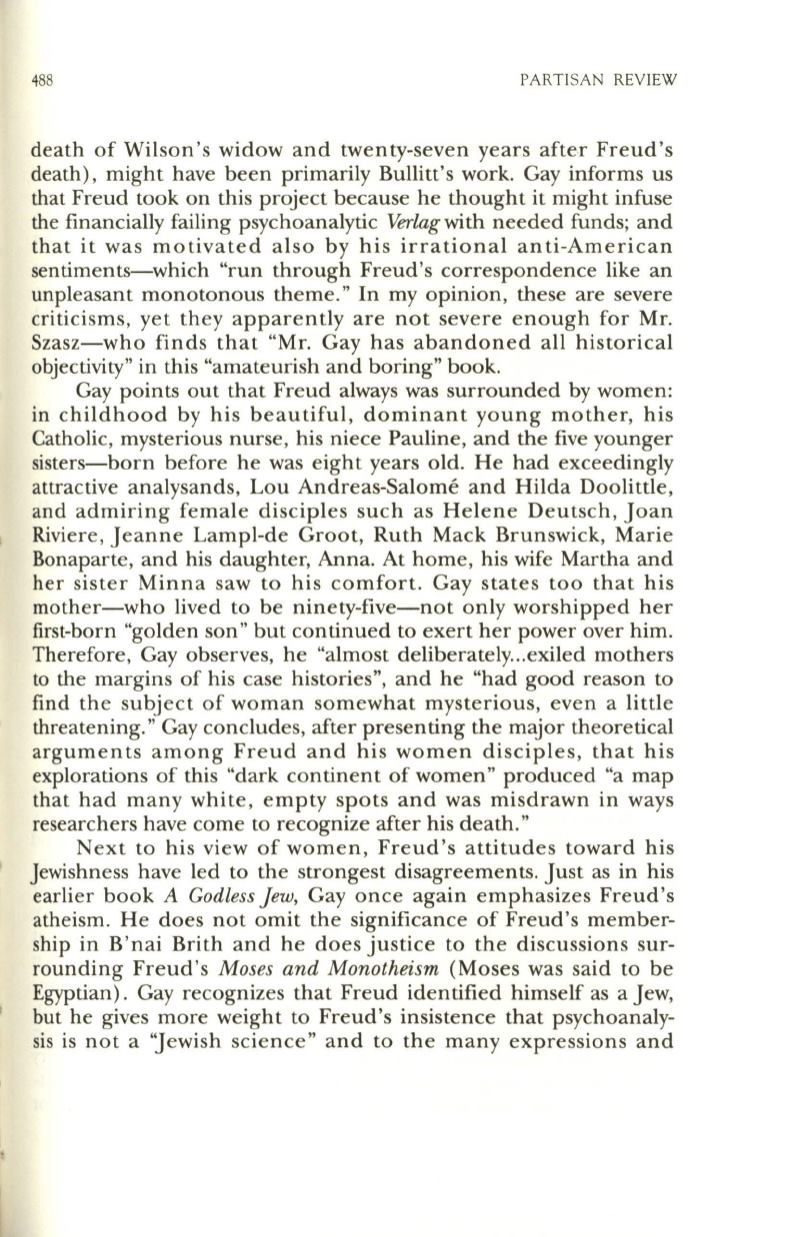
488
PARTISAN REVIEW
death of Wilson's widow and twenty-seven years after Freud's
death), might have been primarily Bullitt's work. Gay informs us
that Freud took on this project because he thought it might infuse
the financially failing psychoanalytic
Verlagwith
needed funds; and
that it was motivated also by his irrational anti-American
sentiments-which "run through Freud's correspondence like an
unpleasant monotonous theme." In my opinion, these are severe
criticisms, yet they apparently are not severe enough for Mr.
Szasz-who finds that "Mr. Gay has abandoned all historical
objectivity" in this "amateurish and boring" book.
Gay points out that Freud always was surrounded by women:
in childhood by his beautiful, dominant young mother, his
Catholic, mysterious nurse, his niece Pauline, and the five younger
sisters-born before he was eight years old. He had exceedingly
attractive analysands, Lou Andreas-Salome and Hilda Doolittle,
and admiring female disciples such as Helene Deutsch, Joan
Riviere, Jeanne Lampl-de Groot, Ruth Mack Brunswick, Marie
Bonaparte, and his daughter, Anna. At home, his wife Martha and
her sister Minna saw to his comfort. Gay states too that his
mother-who lived to be ninety-five-not only worshipped her
first-born "golden son" but continued to exert her power over him.
Therefore, Gay observes, he "almost deliberately...exiled mothers
to the margins of his case histories", and he "had good reason to
find the subject of woman somewhat mysterious, even a little
threatening." Gay concludes, after presenting the major theoretical
arguments among Freud and his women disciples, that his
explorations of this "dark continent of women" produced "a map
that had many white , empty spots and was misdrawn in ways
researchers have come to recognize after his death."
Next to his view of women, Freud's attitudes toward his
Jewishness have led to the strongest disagreements. Just as in his
earlier book
A Godless Jew,
Gay once again emphasizes Freud's
atheism. He does not omit the significance of Freud's member–
ship in B'nai Brith and he does justice to the discussions sur–
rounding Freud's
Moses and Monotheism
(Moses was said to be
Egyptian). Gay recognizes that Freud identified himself as a Jew,
but he gives more weight to Freud's insistence that psychoanaly–
sis is not a 'Jewish science" and to the many expressions and


